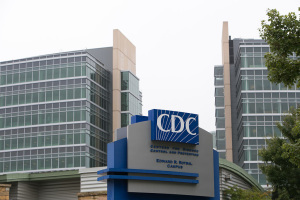“Heresy Upheld” in the Episcopal Church
Anglicans express grief over the consecration of the openly gay bishop elect, Gene Robinson
DURHAM, N.H. - Sunday, November 2, 2003. – In one “grievous day in the history of the church,” all possibilities of a unified Episcopal Church were utterly shattered by the consecration of the openly gay bishop-elect, Gene Robinson. While Robinson himself remained hopeful and jubilant, dozens of protestors agreed the move was an unacceptable act of heresy, one that would ultimately tear apart the worldwide Anglican community.
"Our family is now split and the whole cloth of the Anglican Communion is torn. Realignment has begun," the Anglican Council said in a statement released after the consecration.
"Today is a grievous day in the history of our Church. Heresy has been held up as holy. Blasphemy has been redefined as blessing,” the statement continued. “Holy scripture has been abandoned and sin celebrated over sanctification.”
The Council, which has the support of nearly 600 Episcopal churches in the United States, vowed to create a new “mainstream” Anglican Church in the United States, in its commitment to “preserving Biblical orthodoxy.”
Robinson, fully aware and prepared for such a response, remarked, "If they must leave, they will always be welcomed back into our fellowship."
"Our God will be served if we are hospitable and loving and caring toward them," he continued.
However, the opponents protested that the consecration was clearly in antithesis to the desires of the same God Robinson purportedly serves.
"To press forward with this consecration will be to turn our back on Almighty God," said one of opponents who formally voiced their objections. "The vast majority of Anglicans worldwide have told us not to take this step."
Assistant Bishop David Bena of Albany, N.Y., who spoke for 38 opposing bishops in North America, agreed, saying that Robinson’s "'chosen lifestyle' is incompatible with Scripture and the teaching of this church."
In total, three opponents, each representing different bodies of protestors, made their statements, then left the stadium.
After their departure, the Rev. Frank Griswold – presiding bishop of the U.S. Episcopal Church consecrated Robinson before the 4,000 who gathered at the specially converted ice-hockey arena in the town of Durham.
New Hampshire’s retiring Bishop Douglas Theuner, whom installed the openly gay Robinson as his longtime assistance, defended Robinson’s gay commitment during his consecration sermon.
Robinson "will stand as a symbol of the unity of the church in a way none of the rest of us can" because he will "bring into our fellowship an entire group of Christians hitherto unacknowledged in the church,” he said.
Robinson concurred, saying that his new position symbolized that the church was becoming more like Jesus by reaching out to “people who find themselves at the margins.”
However, Anglican and Episcopalian leaders around the world disagreed.
"Liberalism is an attitude advanced in the sense of tolerance but when it comes to issues of the gospel, such liberalism should not be tolerated,” said Father Muzambi, sub-dean of the Anglican Cathedral in Harare.
Archbishop Peter Aioli, the primate of the Nigerian Church, the largest in the Anglican community, agreed as he called the bishop's sexuality “an abomination.”
The Archbishop of Canterbury Rowan Williams — spiritual leader of the worldwide Anglican Communion — said in a statement from London, “It will not be possible for Gene Robinson's ministry as a bishop to be accepted in every province in the communion.”
Saying that the “divisions that are arising are a matter of deep regret,” he asked that “the effects of this upon the ministry and witness of the overwhelming majority of Anglicans particularly in the nonwestern, be confronted with honesty."




























